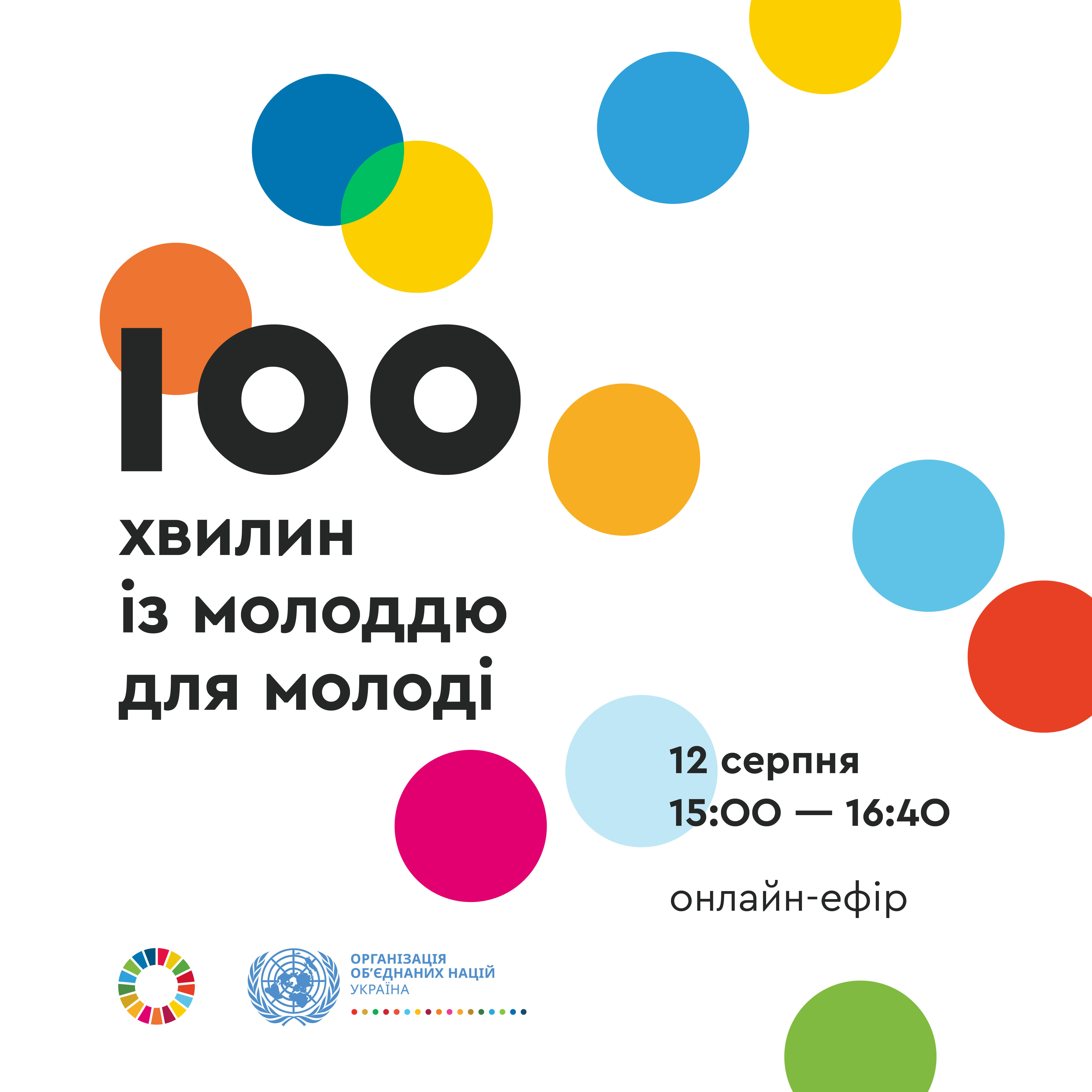Young people under the age of 30 make up about half of the world's population, but they are still under-represented in their parliaments. For some reason, there is a stereotype that young people are either not experienced enough to change something, or are not interested in activism, politics, and community development.
There are more youth leaders than we tend to think. Some of them choose to create youth centers, some develop education, and some even take up less popular industries, such as agriculture.
The UN Office in Ukraine, together with the Ministry of Youth and Sports of Ukraine with the support of the All-Ukrainian Youth Center, prepared an online marathon "100 minutes with youth for youth." During the event, ten youth leaders spoke about their activism, motivation, and the impact of quarantine on their work.
Changes are in the hands of young people
The marathon took place on August 12 - the Youth Day. Ten successful young people shared their experiences during the marathon. Participants represent different areas, but all seek to change the world for the better.
Nadiya Tyutereva was one of the participants of the marathon. Nadiya is 25, and she lives in the Luhansk region, where she organized a self-help group for women. She says that she started her active career at the age of 19 when she began to work as a teacher at a school. While discussing literature with her students, they realized together that stereotypes put a lot of pressure on women. After that, they decided that it needs to be changed.
“I had not thought about the fact that you can help yourself before. Since childhood, you wait for an adult to come and tell you how and what to do. And having grown up a little and talking to like-minded people, we decided that we should take all our problems and needs into our own hands and try to solve them,” says Nadiya.
Nowadays, young people think more often about the problems of society. The generation of "millennials" (born from about 1981 to 1996) is known for their desire for social justice, tolerance, and thirst for change. Generation Z (born 1996 to 2009) promises to be even more inclusive and intolerant towards social stereotypes. These people are now taking control of the situation, improving our society.
Youth and sustainable development goals
This year's Youth Day was entitled "Involving Youth for Global Change.” Young people play a crucial role in achieving the UN Sustainable Development Goals, which were adopted in 2015. Participants in the marathon are also involved in achieving these goals: for example, in reducing inequality, reaching gender equality, and quality education.
The last goal was chosen by Mykhailo Mitko, who is the President of the Kharkiv chapter of the European Law Students Association (ELSA). The organization raises students' awareness of various branches of law, especially international humanitarian law, organizing "moot courts" - model hearings of international courts. Mykhailo believes that everyone should have access to quality education.
Also, the problem of equality is crucial for youth. Young people usually don’t feel it, and they seek to change the situation. Sometimes adults do not want to take young people seriously, believing that they have no experience or simply do not deserve enough respect.
"In our society, when we were growing up, teenagers were not highly respected," says Yana Panfilova, the founder of the Teenergizer youth organization, "we were "bullied" at school, even by teachers. They said, "sit straight,” "bell rings for the teacher," and so on. At some point, I realized that I don't like it very much, and I want to do something to fulfill myself."
Quarantine and search for new formats
The role of youth is only growing in a time of significant change - for example, during the COVID-19 pandemic and global lockdown. Leaders have to seek new formats, but sometimes the changes open up new possibilities. For instance, Khrystyna Bilinska, the founder of the Ternopil Science Center, says that young people in the city have formed volunteer teams that provide psychological assistance, volunteer in health care facilities, and more. During the quarantine period, volunteers delivered more than a thousand food kits. The Science Center itself has transformed its activities, too - it has purchased 3D printers that print medical face shields for doctors.
Director of MoloDvizh Center Oleh Malets calls the quarantine a "gut punch,” but notes that the center was able to take matters into its own hands by quickly transferring its activities online.
Ten young leaders showed in 100 minutes that the essential thing in activism is the desire to change something. Leadership, intolerance of discrimination, the desire to change are the main drivers that can improve community life. You don't have to wait for a "magic age" or an extraordinary experience to make a difference.
It is not surprising that young people want change because the life of the whole planet depends on the youth leaders’ activities. This task is responsible, but at the same time, intriguing.


